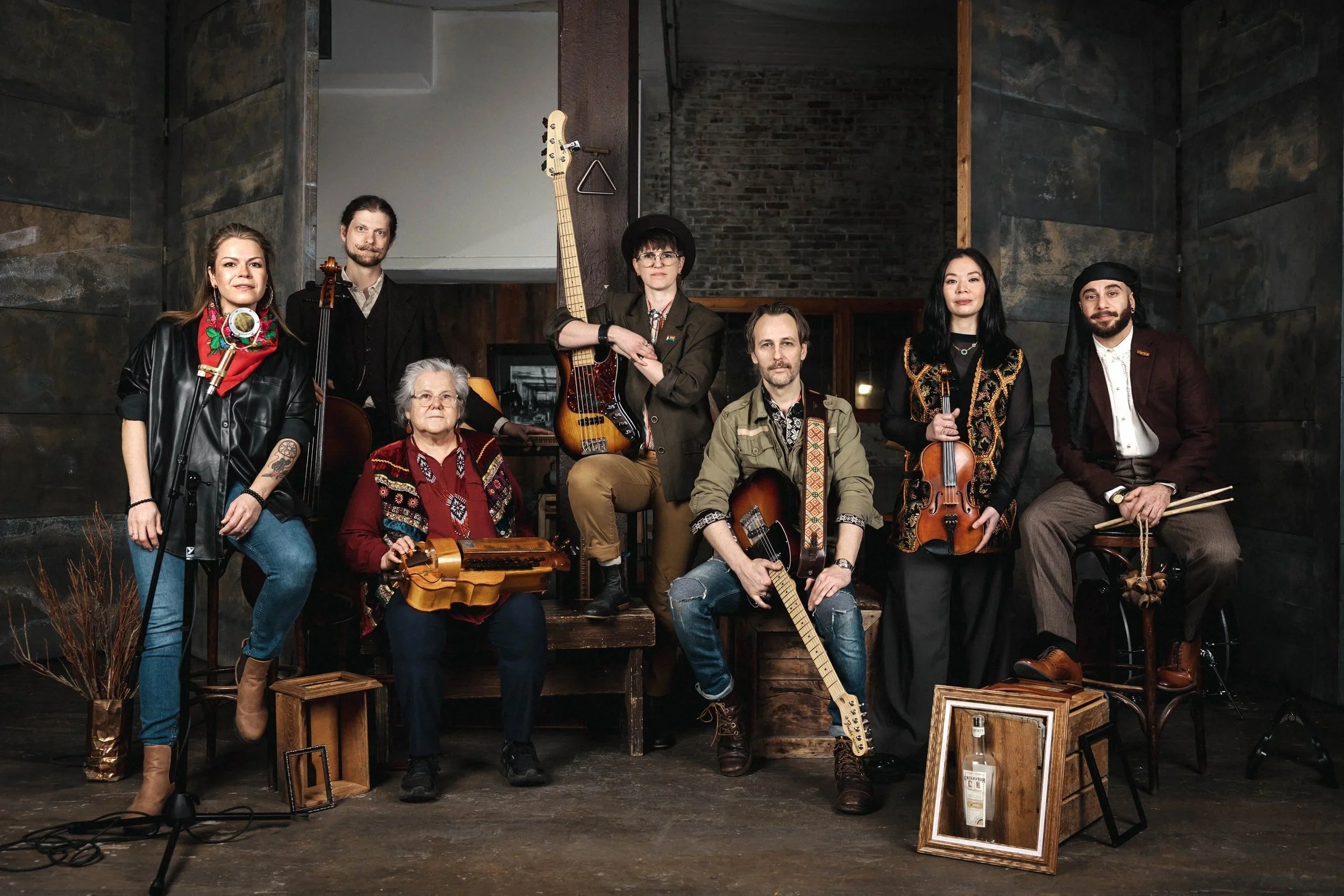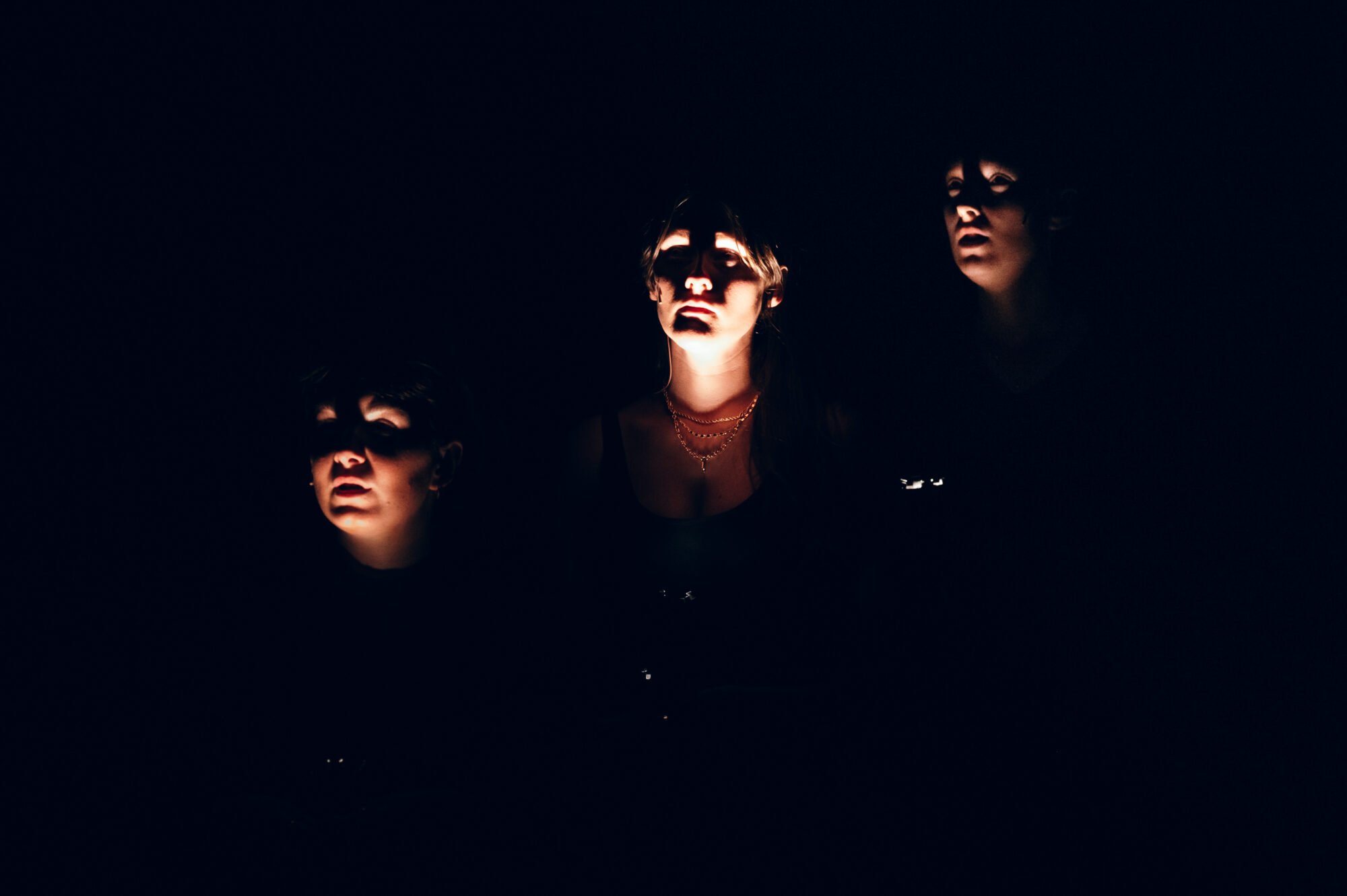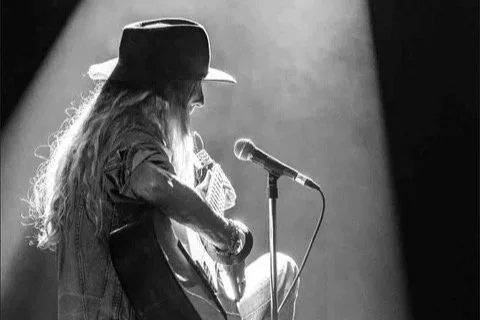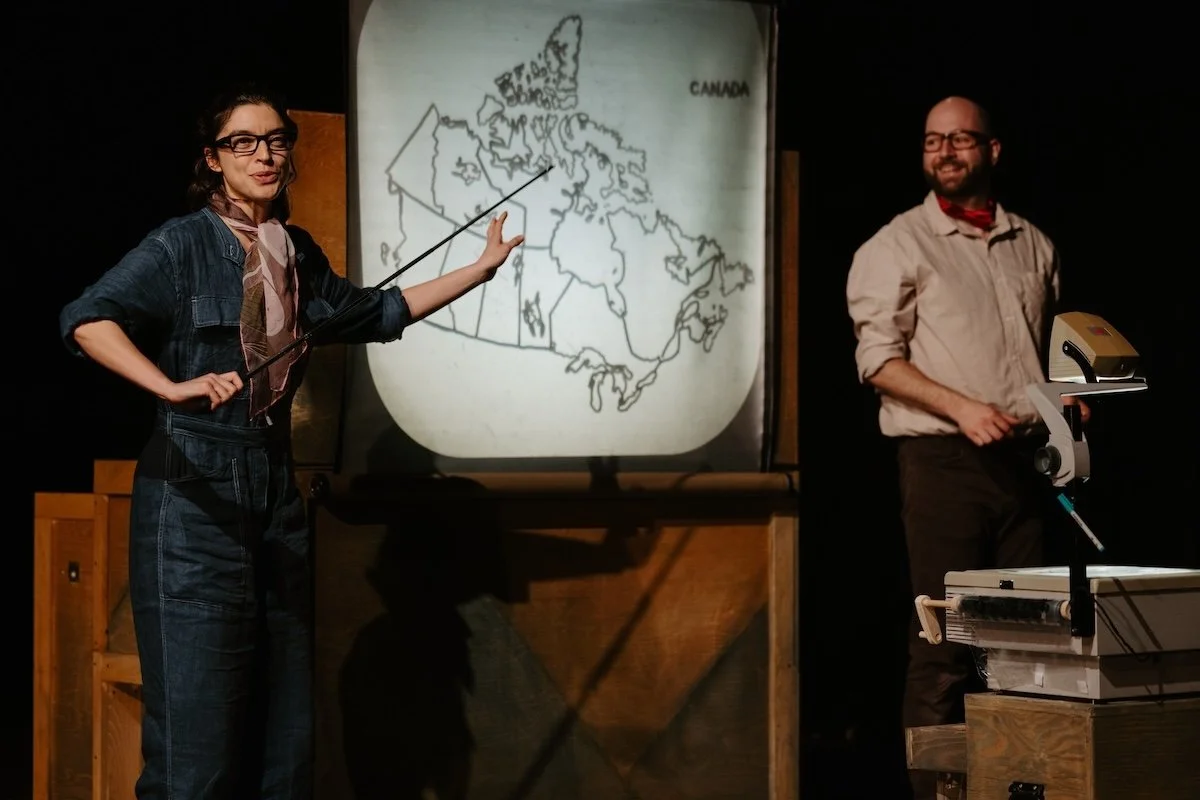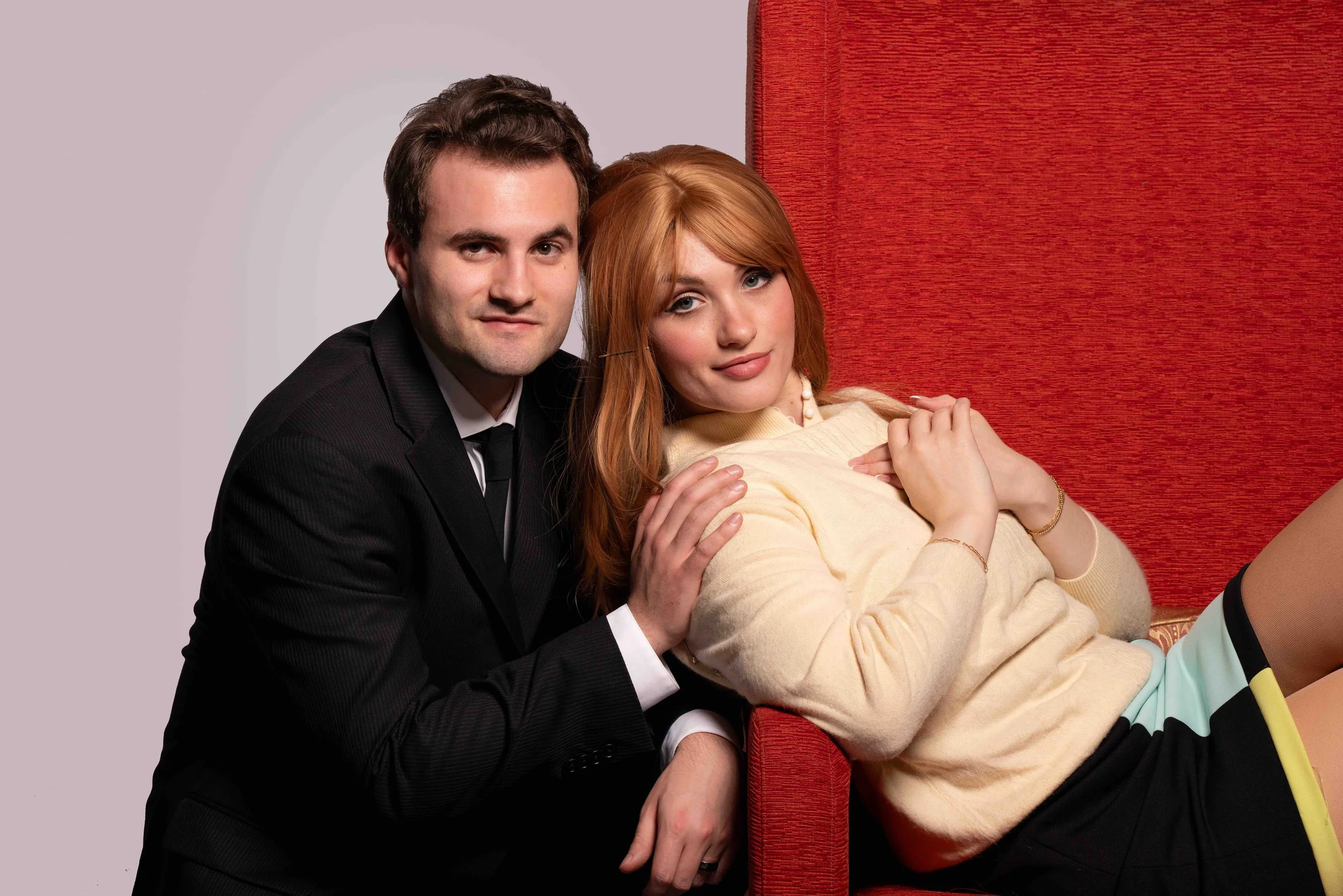Words and music merge in unpredictable ways in Applied Silence's Screen Door
Playwright José Teodoro and composer-musician Stephen Lyons approach theatre-making through integrative thinking
Screen Door features text by Jose Teodoro and music by Stephen Lyons. Photo by Laura Barrón
Pi Theatre presents Screen Door by Applied Silence on December 3 at 8 pm at St. James Community Square as part of its Pi Provocateurs series
JOSÉ TEODORO IS a prolific playwright, author, culture writer, film and literary critic, and juror who has several other titles on his CV; at the moment, he’s also artist-in-residence at Deer Lake. Stephen Lyons is a Juno-winning multi-instrumentalist, composer, improvisor, and producer of creative music and art who is perhaps best known for his work in the avant-rock septet Fond of Tigers; he’s appeared on more than 30 albums in a wide range of genres, and has collaborated with Colin Stetson and NoMeansNo’s Rob Wright, among other notable artists.
Together, Teodoro and Lyons are Applied Silence, a newly formed group creating artworks that integrate music and narrative in new and unconventional ways.
Among the duo’s first projects is a recording of Screen Door, a work for actors and musicians that will be released early next year—and which will have a one-night-only live performance on December 3 as part of Pi Theatre’s Provocateur series.
Written and directed by Teodoro with musical direction and thematic composition by Lyons, Screen Door is a tandem narrative with three musical modes that immerses audiences in two idiosyncratic ghost stories. In one, a woman receives a postcard originally written 36 years earlier to her now-deceased father, the storyline drawing inspiration from a real-life project by Mexican artist Gustavo Artigas. In the other, a middle-aged former bureaucrat whose life changes upon winning the lottery falls asleep at the movies and wakes up transformed, disconnected from the world around him.
“They’re both kind of uncanny, spooky stories,” Teodoro says in a phone interview with Stir. “In one story, a person receives a postcard, and in another story, another goes to the movies, but these seemingly banal experiences actually have a great deal of consequence for the people involved. The characters begin to realize that they’re stuck in some sort of a loop, but that’s just one part of the piece.”
Lyons and Teodoro each take on various roles in the performance, alongside actors Tasha Faye Evans, Steven Hill, and Jessie Liang; Juno-winning bassist Shanto Acharia (formerly of Fond of Tigers, who here takes bass sounds to wild places through effects); and musician Paul Rigby (Neko Case, Calexico), who will play piano and pedal steel (“He’s an absolute wizard on that thing,” Teodoro says).
“It’s sort of like a spoken-word chamber opera, in a sense,” says Teodoro, who’s currently on the second of two consecutive residencies at Deer Lake. (The first was part of his ongoing work as an associate with Playwrights Theatre Centre and focused on his new play Binary Star; the current position is based on Without Destination, a literary project initiated earlier this year at Historic Joy Kogawa House.)
José Teodoro.
Screen Door builds on the pair’s collaboration in Cloudless, a 2021 audio play by Teodoro that Lyons crafted the music and soundscapes for.
“I was really not interested in writing a play then having musical accompaniment come afterward,” Teodoro says. “I wanted to create a work where the music and the acting or vocals or narrative were very integrated. As a writer and a playwright, I’ve always been very interested in the way that one art form can speak to another art form, and music is probably my favourite art form. I’ve been writing plays that I think somehow are becoming more and more like music over time….Screen Door is the most extreme version of me writing a play that works like music. It’s very much structured like music with variations on themes, and recapitulation, and coda, and the script also features prompts or instructions for musicians.”
During an initial pre-pandemic meeting about the project, Teodoro asked Lyons if he wanted to hear some of the ideas he had in mind for the score. “He said ‘Not really,’” Teodoro recalls. Lyons’s response was in fact exactly what he wanted to hear.
“By that point in time, he knew something of my writing and I knew something of his music, and I liked the idea that we were going into this endeavour not talking about how this section is going to be like this,” Teodoro says. “He’s reading the text very carefully, and I’m trying to be as responsive as possible to his ideas, most of which come through music and not through talking.
“I was really excited about the possibility of being as precise as possible with the images or sensations being described and just trusting that someone like Stephen could come up with ideas for interpretation that would on one hand totally be a very careful reading of the text and on the other hand be something I could never predict,” he adds. “In all my experiences, one of the most exciting creative experiences of my life was hearing this music come about. I’ve never heard anything quite like what we’re making.”
Stephen Lyons.
For Lyons’s part, he was on the same page as Teodoro in terms of wanting to see Applied Silence in general and Screen Door in particular come to be.
“We talked about making a piece where the music wasn’t subordinate or background and not necessarily polite to the script,” Lyons tells Stir by phone. “He has a pretty diverse musical taste, and I knew that there was something that he had in mind when he was writing and developing the script, that he had sonic touchstones. I said I didn’t want to hear them or hear about them, so we locked that away….He also trusted and allowed for the idea that I didn’t want to proceed from that kind of framework, because you’re either imitating something or you’re trying not to imitate something.” He adds with a laugh: “We all know how the Ray Parker Jr. and Ghostbusters theme worked out, and I don’t want to get embroiled in something like that!”
Lyons describes Screen Door’s musical modes as ranging from frenetic, with gently controlled chaos, to ambient, expansive, and somewhat delicate “with a bit of dark wonder”, and beyond.
“It feels kind of rare for someone that’s developed a script to have such an openness to interpretation,” Lyons says. “Another thing I like about Applied Silence is that over the last little while I’ve had a little bit of trouble finishing things. José is a good buddy for saying ‘Okay, let’s do this.’”
Pi Theatre executive director Richard Wolfe was keen to present the genre-bending work for a few reasons. For one, it fits with the Pi Provocateurs series, which, since 2016, has been creating opportunities for Canadian artists looking to push the boundaries of theatre. For another, having known both artists for quite a while, he was excited to support their new interdisciplinary company.
“I’ve worked with Stephen a few times, and of course I’m a big fan of his band Fond of Tigers,” Wolfe tells Stir. “I’ve also been reading José’s writing for some time and am taken by the depth and beauty of it. The Screen Door project was designed as a digital audio piece, but José and Stephen, being the fearless types that they are, agreed to doing a one-night-only live performance as part of Pi Provocateurs. If all that weren’t enough, the other musicians and actors, who will be onstage with them at the St. James Hall on Friday, are extraordinary.”
For more information, see Pi Theatre at https://www.pitheatre.com/.









